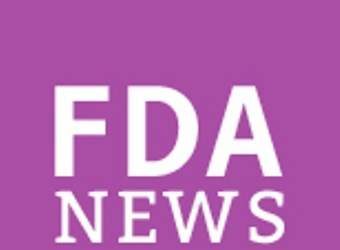FROM JAMA
The quality of studies and data relied upon to support Food and Drug Administration–accelerated drug approvals and high-risk device modifications is often lacking, two studies showed.
Between 2009 and 2013, the FDA granted accelerated approval for 22 drugs with 24 indications, which were supported by 30 preapproval studies with a median of 132 subjects. Only 12 of those studies (40%) were randomized, and only 6 (20%) were double blind. Eight (27%) included fewer than 100 subjects, and 20 (67%) included fewer than 200, reported Huseyin Naci, PhD , of the London School of Economics and Political Science, and his colleagues.
Further, at a minimum of 3 years after the approval, only half of the 38 confirmatory studies required by the FDA were completed, and, ultimately, only 25 of the 48 (66%) examined clinical efficacy, only 7 (18%) evaluated longer follow-up, and only 6 (16%) focused on safety, the investigators reported ( JAMA. 2017 Aug 15;318[7]:626-36 ).
The proportion of studies that were randomized was slightly, but not significantly greater in the postapproval vs. preapproval period (56% vs. 40%), and only one was double blind. For 10 of 24 indications (42%), postapproval study requirements were completed and demonstrated efficacy based on surrogate measures, the investigators said.
Of the 14 remaining indications (58%) for which FDA study requirements had not yet been met, 2 (8%) had at least one confirmatory study that failed to demonstrate clinical benefit (without apparent action on the part of the FDA to rescind approval or impose additional requirements), 2 (8%) had a least one confirmatory study that was terminated, and 3 (13%) had at least one confirmatory study that was delayed by more than a year. The required studies for the remaining indications were progressing as planned, but for eight indications, clinical benefit had not yet been confirmed at 5 or more years after approval.
Similar concerns were seen in a review of clinical studies used to support high-risk medical device modification approvals. Such devices often undergo numerous modifications that receive FDA approval through one of six premarket approval (PMA) supplement pathways, and a total of 83 studies that supported 78 panel-track supplements (one of the 6 pathways and the only one that always required clinical data) approved between April 19, 2006, and Oct. 9, 2015, were identified. Nearly all (98%) of those 78 modifications were supported by just one study; only 45% of those studies were randomized clinical trials, and only 30% were blinded, reported Sarah Y. Zheng, MD , of the University of California, San Francisco, and her colleagues ( JAMA. 2017 Aug 15;318[7]:619-25 ).
The median number of patients in the studies was 185, and the median follow-up was 180 days. Further, of 150 primary endpoints in the studies, 121 (81%) were surrogate endpoints, 57 (38%) were compared with controls, and 6 (11%) of those involved retrospective rather than active controls.
Age and sex were not reported for all enrolled patients in 40% and 30% of the studies, respectively, and in the case of one device modification study, 91% of enrolled patients were not included in the primary analysis.
“Given the extensive modification of many PMA supplement devices and the median preapproval follow-up of 6 months, obtaining additional data via [postapproval studies] is critical. However, the FDA required [postapproval studies] for the minority (37%) of the panel-track supplements,” the investigators noted, adding that only 13% of initiated postapproval studies were completed between 3 and 5 years after FDA approval, and that no warning letters, penalties, or fines were administered for noncompliance.
“These findings suggest that the quality of studies and data evaluated to support approval by the FDA of modifications of high-risk devices should be improved,” they concluded.
Dr. Zheng and her colleagues reported having no conflicts of interest. Dr. Naci reported having no conflicts of interest. One coauthor, Aaron S. Kesselheim, MD, reported receiving unrelated grants from the FDA Office of Generic Drugs and Division of Health Communication.




